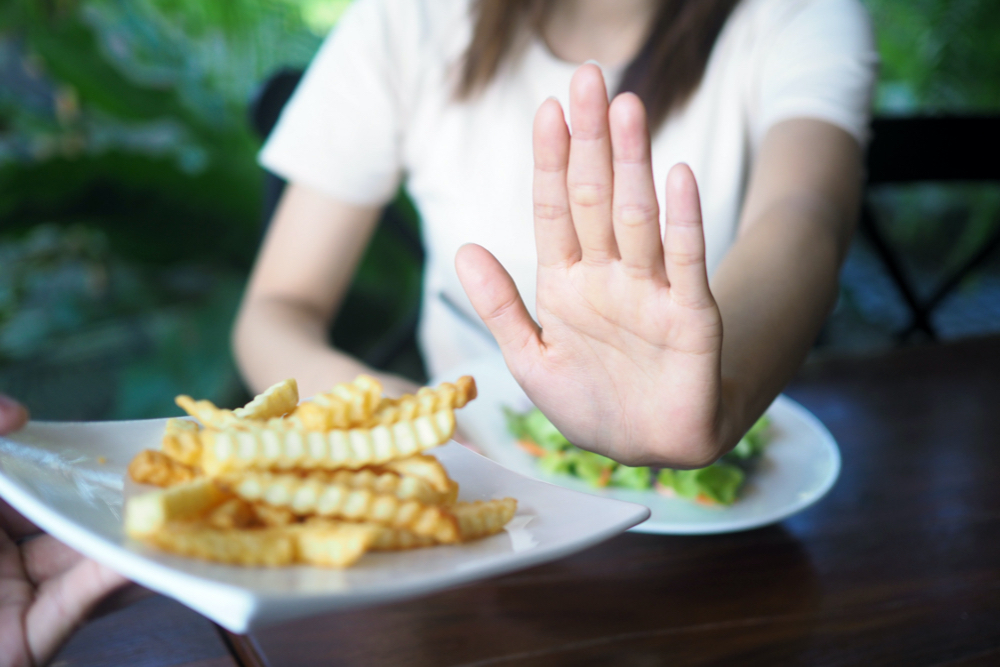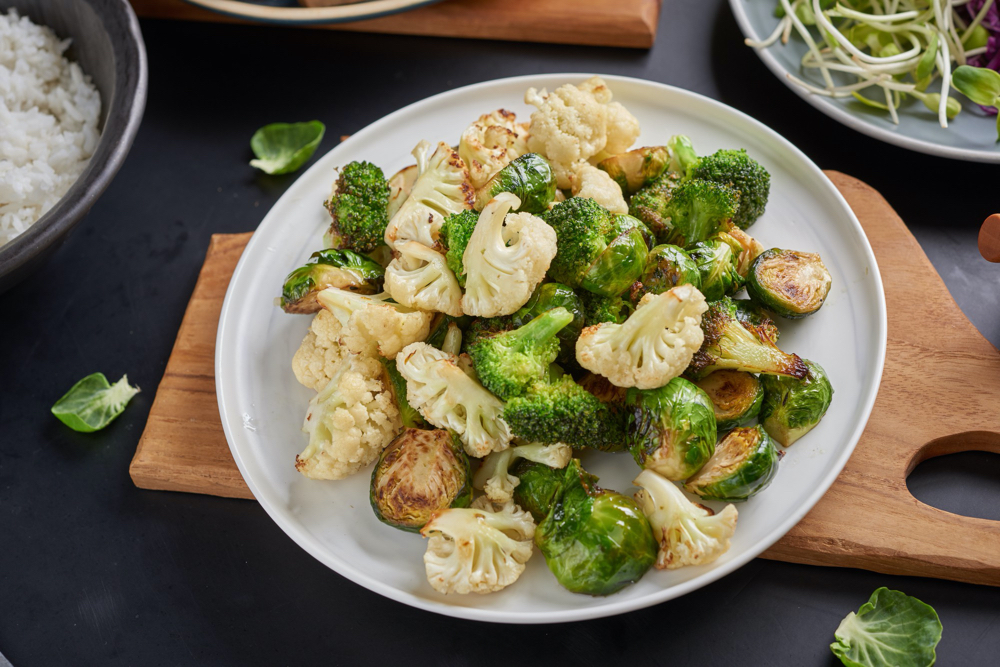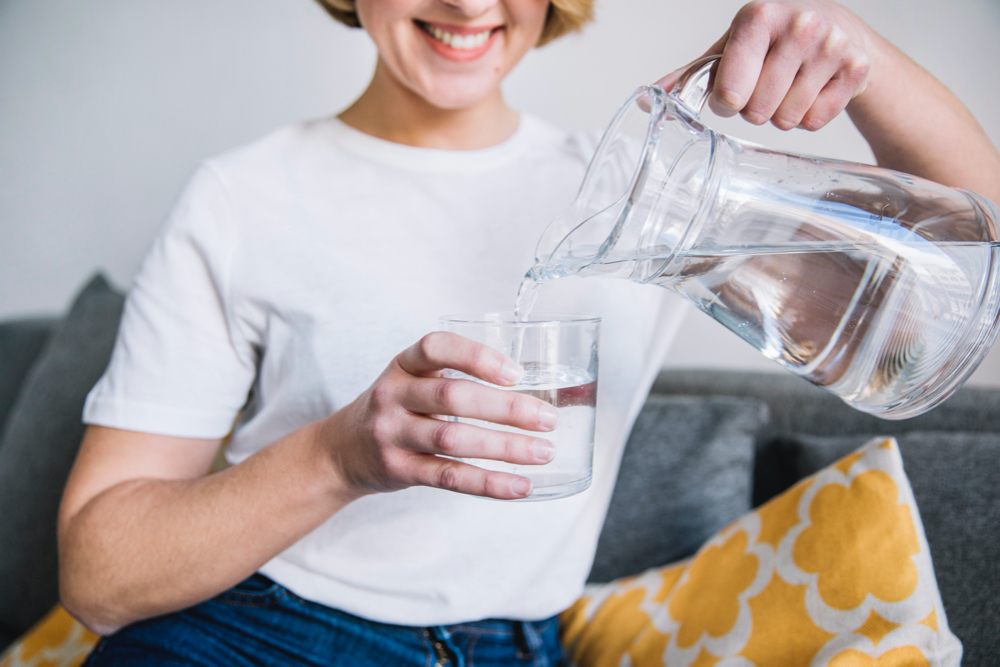- Fast results
- 4,000+ locations
- 4.8 star rating
Need Help? (888) GET LABS



Stomach or peptic ulcers involve the development of sores in the stomach lining and something even in the upper region of the small intestine. The condition is caused by a bacteria called Helicobacter pylori.
Although medications comprise the primary treatment for the infection, adjusting your diet prevents its recurrence and ensures its effectiveness.
Managing stomach ulcers include avoiding foods that could worsen or further irritate your stomach lining, like salty and fatty foods, processed meat, alcoholic beverages, coffee, and spicy foods. In addition, it also helps to pick foods that promote peptic ulcer healing, like those containing probiotics and prebiotics.
Read more about these diet tips and how they fit into your H. pylori infection treatment.

A diet rich in sodium-rich and fatty foods not only increases your risk for peptic ulcers but can also worsen the condition when the infection does take place. For example, a high-salt diet triggers a gene activity that makes H. pylori more active in the stomach, triggering inflammation and the spread of gastric lesions.
Meanwhile, suppose your diet is rich in fats, especially from unhealthy sources. In that case, you are more likely to alter your stomach’s environment, making it ideal for microbial growth, specifically Helicobacter.
With this information, avoid the following foods and stick to fruits and vegetables:

Frequent alcohol consumption in copious amounts irritates a healthy stomach lining, let alone one with ulcerations. It leads to the inflammation of the tissues and aggravates irritation.
On the other hand, coffee promotes gastric acid production. Hence, coffee and other caffeinated drinks can potentially exacerbate the condition if you already have a peptic ulcer, gastritis, or gastroesophageal reflux disease (GERD).
However, there are conditions where coffee can have little to no effect on peptic ulcers. That said, it’s best to seek your doctor’s advice when it comes to regulating your coffee intake.
While these popular beverages should be limited, you can find better alternatives that don’t worsen the ulcers but promote healing and recovery as well. These drinks include green tea and cabbage juice.
Green tea, for example, has properties and antioxidants that alleviate symptoms of gastritis and peptic ulcers. It also has the potential to help eradicate Helicobacter bacteria. This, among other health benefits, makes green tea the healthiest beverage in the world.

Aside from antibiotics, probiotics also help eliminate H. pylori. These good bacteria balance the microbial population in the gut, eradicate the infection, and reduce the inflammatory impact and lesion development in the stomach lining.
To improve your gut’s microbial environment and promote healing in the mucosal region of the stomach, consider adding the following food items to your diet.
These foods contain probiotics that target H. pylori and improve healing from peptic ulcers, specifically Lactobacillus and Bifidobacterium.
Did You Know? Prebiotics are specialized dietary fibers promoting the growth of good bacteria in the gut. Probiotics, on the other hand, refer to healthy bacteria and yeast living in the body. They ensure proper digestive processes and improve your immunity against infections.

While eating more fruits and vegetables is highly recommended if you have a peptic ulcer, you can speed up your healing if you specifically add broccoli and Brussels sprouts, and other cruciferous veggies to your diet.
For one, these vegetables are excellent sources of prebiotics that promote healthy bacteria. As a result, it helps combat infection caused by pathogenic or disease-causing bacteria like H. pylori.
Additionally, a study confirms that broccoli sprouts can help eliminate Helicobacter bacteria, suggesting they have antibacterial properties that antagonize the causative agent for peptic ulcers.
Did You Know? Broccoli has tons of other nutrients, including folic acid, which is why it is not just recommended for those with peptic ulcers, it’s also ideal for pregnant women.

If you haven’t already, you need to ensure drinking at least eight glasses of water a day. This habit helps you achieve overall wellness, and in the cases wherein you have peptic ulcers, it aids in decreasing the irritation caused by the infection.
According to a study, water helps neutralize gastric juice by increasing its pH level. It has a similar effect as those of antacids. For best results, ask your doctor or nutritionist for the ideal amount of daily water intake tailored to your condition.
Aside from how much water you should drink, also make sure your water source is clean and safe. Otherwise, it can worsen your ulcers. H. pylori may come from saliva, dirty utensils, and contaminated water.
Some common symptoms of stomach ulcers you might experience include stomachaches, specifically between your belly button and the lower rib.
You may also feel bloated and nauseous. Plus, frequent vomiting, acid reflux, fecal discoloration, and constant burping are likely. With these symptoms, H. pylori causes appetite and weight loss by extension.
Left untreated, H. pylori infections can lead to internal bleeding, which can be detected via a stool test. In mild peptic ulcers, the blood can be invisible to the naked eye but can be detected through microscopic and chemical screening in a fecal occult blood test.
Meanwhile, in severe cases, peptic ulcers that have not been medically addressed can cause perforation, where a hole in the stomach or intestinal lining forms and aggravates the infection. On top of that, your risk of other chronic digestive diseases increases, like gastric and colon cancer.
Pro Tip: If you experience symptoms of peptic ulcer, consult a healthcare provider to lead you to the right lab test. While home remedies may alleviate the pain and discomfort, these are insufficient when treating the condition accurately.
Aside from the H. pylori infection symptoms, you should also be mindful of your risk of developing peptic ulcers.
For example, taking over-the-counter medications that can cause inflammation of the stomach lining will make you more susceptible to Helicobacter infection. These include pain relievers, anticoagulants, and risedronate.
Some of the highly recommended foods promoting gut healing include probiotics like fermented vegetables, yogurt and kombucha, salmon, leafy greens, bananas, bone broth, pineapple, kiwi, coconut milk, broccoli, and green tea. For best results, work with your healthcare provider or nutritionist to develop a tailored diet plan that helps ease up your H. pylori infection.
Antibiotics like metronidazole, tinidazole, tetracycline, and amoxicillin eliminate Helicobacter from the stomach lining. However, the dosage and how long the treatment will be would depend on your doctor’s diagnosis of its severity. On top of that, other medications may be prescribed to help regulate gastric juice. Plus, certain routines must be adjusted to ensure the bacteria are killed off completely.
Vitamin c, or ascorbic acid, is the primary vitamin that may help treat stomach ulcers. According to a 2018 review, H. pylori infection correlates with vitamin c deficiency. On top of that, it also helps strengthen your immune system by promoting the migration of white blood cells to the site of infection.
But aside from vitamin C, those with peptic ulcer caused should also increase their intake of natural vitamin B12 sources. Vitamin B12 deficiency can result from the infection, but it could also drive the development of gastritis ulcers.
Treating H. pylori infection may involve taking prescribed antibiotics. However, you can ensure the treatment works well and even speed it up with the proper dietary adjustments. So, once you’re diagnosed with peptic ulcer, perhaps through an H. pylori stool test, consult your doctor further on specific foods you should eat and avoid.
While our list presents pretty much the general diet tips for stomach ulcers, checking with your healthcare provider allows you to narrow down your best options and consider factors like rare food allergies.
Additional Readings:

© Copyright 2025 Personalabs. All Rights Reserved.